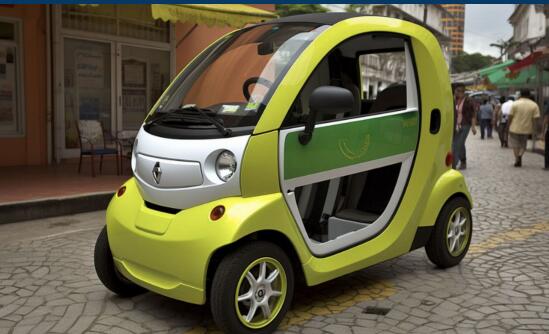As seniors, transitioning to an electric vehicle (EV) can be a rewarding experience. This guide explores the benefits and offers practical tips for making this change smoothly.

As seniors, transitioning to an electric vehicle (EV) can be a rewarding experience. This guide explores the benefits and offers practical tips for making this change smoothly.
Electric vehicles are better for the environment, producing zero tailpipe emissions. Seniors who care about leaving a cleaner planet for future generations will appreciate this eco-friendly aspect.
EVs generally cost less to operate than traditional gasoline cars. With reduced fuel and maintenance costs, seniors on fixed incomes can enjoy significant savings.
Electric vehicles offer a quieter and smoother driving experience. This can be particularly beneficial for seniors with hearing sensitivities or those who prefer a less jarring ride.
Modern electric vehicles often come equipped with advanced technology features, such as adaptive cruise control, lane-keeping assist, and collision warning systems. These features can enhance driving safety and convenience for seniors.
Electric cars have fewer moving parts compared to traditional combustion engines, leading to lower maintenance requirements. Seniors can avoid frequent trips to the mechanic, saving time and hassle.
Before making the switch, assess your driving habits. Consider the distance you typically travel, driving conditions, and any specific needs, such as additional cargo space or ease of entry and exit.
Speak to an EV specialist or dealership about your specific requirements. They can offer tailored advice and help you choose the right model based on your needs and budget.
Test driving various EV models is crucial. Pay attention to comfort, ease of handling, and visibility. Choose a vehicle that you find comfortable and easy to drive.
Familiarize yourself with the different charging options. Home charging can be convenient, but public charging stations may also be necessary for longer trips. Ensure you have access to reliable charging options.
Prioritize vehicles with advanced safety features. Look for models equipped with automatic emergency braking, blind-spot monitoring, and pedestrian detection to enhance your safety on the road.
Research federal and state incentives for purchasing electric vehicles. Many regions offer tax credits, rebates, or discounts for EV buyers, making them more affordable.
Consider purchasing a maintenance plan for your EV. While they require less maintenance, having a plan can cover routine checks and unexpected repairs.
Joining an electric vehicle community or senior driving group can provide valuable support and resources. These groups often share tips, experiences, and the latest news related to EVs.
Take time to get accustomed to the new technology. Many EVs feature user-friendly interfaces, and dealership staff can often provide tutorials to help you become confident with the new features.
Transitioning to an electric vehicle can offer numerous benefits for seniors, from cost savings to a smoother driving experience. By assessing personal needs, consulting with professionals, and taking advantage of available resources, seniors can make a well-informed decision that enhances their driving lifestyle.
Explore the Tranquil Bliss of Idyllic Rural Retreats

Ultimate Countdown: The 20 Very Legendary Gaming Consoles Ever!

Understanding Halpin and its Influence

Affordable Full Mouth Dental Implants Near You

Discovering Springdale Estates

Illinois Dentatrust: Comprehensive Overview

Embark on Effortless Adventures: Unveiling the Top in Adventures Made Easy Outdoor Equipment

Unveiling Ossur Valves: Innovation in Prosthetics

Unlock the Full Potential of Your RAM 1500: Master the Art of Efficient Towing!
